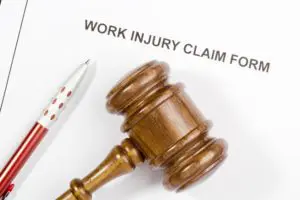What is an Appeal?
An Appeal is, “The complaint to a superior court of an injustice done or error committed by an inferior one, whose judgment or decision the court above is called upon to correct or reverse.” (Black’s Law Dictionary 124. 4th Ed. Rev. 1968)

The appeal process involves a losing party requesting a higher court to reconsider a ruling or decision made at trial. Most appeals take place in an appellate court. The party making an appeal is known as the appellant, while the original winning party is known as the appellee or respondent. Common errors that can be considered proper grounds for appeal may include legal application errors by a sitting judge, procedural errors conducted by attorneys, or evidence issues such as improper evidence being allowed in court or important evidence being wrongfully excluded from court. After arguments from both the appellant and appellee as to why a court’s decision is either proper or not, the appellant court will decide to affirm, reverse, or remand that decision. When a decision is remanded, that particular case is sent back to a lower court for a new trial or other proceedings.
An appeal can only be made after a final judgment is made. A case can not be appealed when it is ongoing or if facts of the case are in dispute. Rulings in cases such as Bowersock v. Missouri Valley Drainage Dist. of Holt County clarify that appeals are continuations of existing lawsuits, not lawsuits themselves. While appeals may lengthen the legal process, they are seen as vital parts of the justice system. They exist to insure that errors or issues don’t result in the wrong rulings.
More information about Appeal
Workers’ Compensation Denial & Appeals
Workers’ Compensation Denial & What You Can Do
 If you have received a denial letter for your workers’ compensation claim, it could be for several different reasons. Your employer may deny responsibility for your injury, the insurance company may suspect you have a pre-existing condition, or it may be a simple error with your paperwork. Whatever the reason, if you have been injured at work, you may be able to appeal the denial.
If you have received a denial letter for your workers’ compensation claim, it could be for several different reasons. Your employer may deny responsibility for your injury, the insurance company may suspect you have a pre-existing condition, or it may be a simple error with your paperwork. Whatever the reason, if you have been injured at work, you may be able to appeal the denial.
It’s not uncommon for workers’ compensation claims to be denied. This is where a workers’ comp lawyer can help. You are entitled to workers’ compensation benefits when your work duties result in an injury or illness, or aggravate a previous ailment. Benefits include medical bills and lost wages. Contact a work injury lawyer at Munley Law Personal Injury Attorneys for help appealing your denied claim. […]
Read MoreMore information about Appeal
$29.4 million verdict in Johnson & Johnson talcum powder case
On Wednesday March 13, 2019 a California jury awarded Teresa
Leavitt $24.4 million and her husband, Dean McElroy $5 million in a trial
brought by them against Johnson & Johnson.
Teresa Leavitt believes her mesothelioma, a terminal disease caused by
asbestos exposure, is linked to her regular use of Johnson & Johnson’s
talcum powder.

The Leavitt case is the first case to be tried since a
bombshell report by Reuters and the New York Times about the contamination of
baby powder with asbestos. Both reports
sighted leaked internal documents showing Johnson & Johnson knew about the
problem as far back as 1971.
Johnson & Johnson said they were disappointed in the verdict and they would pursue an appeal. Johnson & Johnson’s spokesperson, Kimberly Montagnino said, “we will pursue an appeal because Johnson’s Baby Powder does not contain asbestos or cause cancer.” […]
Read MoreMore information about Appeal
Report: J&J Knew for Decades About Asbestos in Baby Powder
Report: J&J knew about asbestos in their products and issued no warning
In a new report that drove the company’s shares down more than 9%, Reuters stated that Johnson & Johnson has known since the 1970s that its talc baby powder sometimes contained carcinogenic asbestos.
Reuters based its report on a review of documents and deposition and trial testimony that showed that from at least 1971 to the early 2000s, the company’s raw talc and finished powders sometimes tested positive for small amounts of asbestos. Company executives, managers, doctors and lawyers discussed the problem amongst themselves but didn’t inform regulators or the public. The documents examined by Reuters also describe successful efforts to influence U.S. regulators’ plans to limit asbestos in cosmetic talc products and scientific research on the health effects of talc.
 The company has faced thousands of lawsuits alleging its talc baby powder products contain asbestos and caused ovarian and other cancers. […]
The company has faced thousands of lawsuits alleging its talc baby powder products contain asbestos and caused ovarian and other cancers. […]
More information about Appeal
J&J ordered to pay $4.69 billion to cancer victims in talcum powder lawsuit
Johnson & Johnson ordered to pay $4.69 billion in talcum powder lawsuit
A St. Louis jury returned a $4.69B verdict in favor of 22 women who claimed Johnson and Johnson’s products contained asbestos which caused them to develop cancer.
The verdict is the latest in a series of massive wins for women and their families who have filed cancer-related lawsuits against Johnson and Johnson. In August, 2017, a Los Angeles jury awarded a $417 million verdict in favor of a woman who claimed that Johnson and Johnson’s baby powder caused her to develop ovarian cancer, and in February 2016, a Missouri jury awarded $72 million to the family of a woman died of ovarian cancer after decades of using J&J’s baby powder.

In its natural form, talc (a common ingredient in cosmetic and personal care products, including the popular J&J baby powder) can contain asbestos fibers. […]
Read MoreMore information about Appeal
How the PA Supreme Court ruling on IREs affects injured workers
Injured workers in Pennsylvania: If you underwent an IRE (impairment rating evaluation or exam) you may be entitled to additional benefits. Contact Munley Law Personal Injury Attorneys to learn how the PA Supreme Court decision affects you.
 The recent PA Supreme Court decision in Protz v. Workers’ Compensation Appeal Board (Derry Area School District) may affect Pennsylvania workers who have received disability benefits.
The recent PA Supreme Court decision in Protz v. Workers’ Compensation Appeal Board (Derry Area School District) may affect Pennsylvania workers who have received disability benefits.
Pennsylvania Supreme Court ruling on IRE process may entitle injured workers to additional benefits
Since 1996, employers could require injured workers to undergo impairment rating evaluations or IREs after two full years of receiving total disability benefits. Under Section 306(a.2) of the Pennsylvania Workers’ Compensation Act, IRE physicians used the most recent edition of the American Medical Association’s Guides to the Evaluation of Permanent Impairment to calculate an impairment percentage. If a patient was deemed less than 50% impaired, […]
Read More








